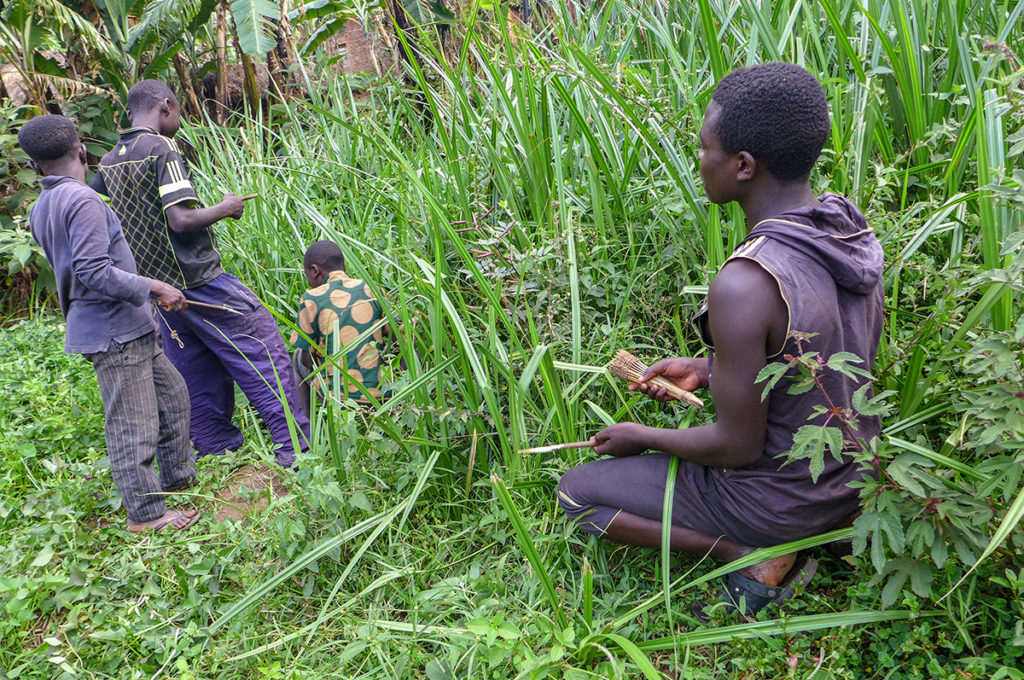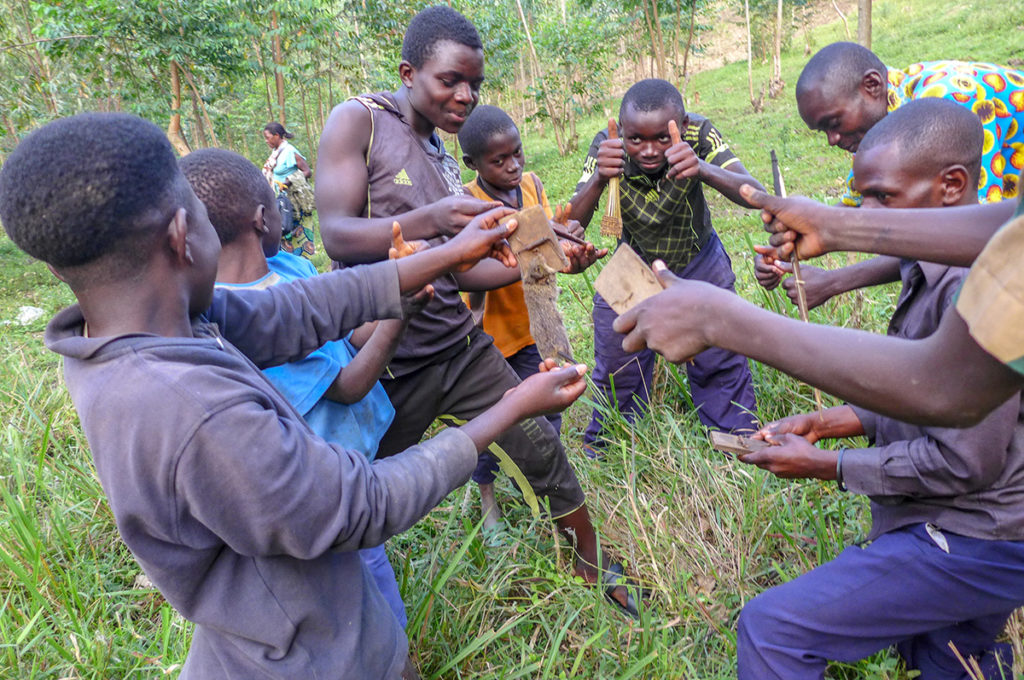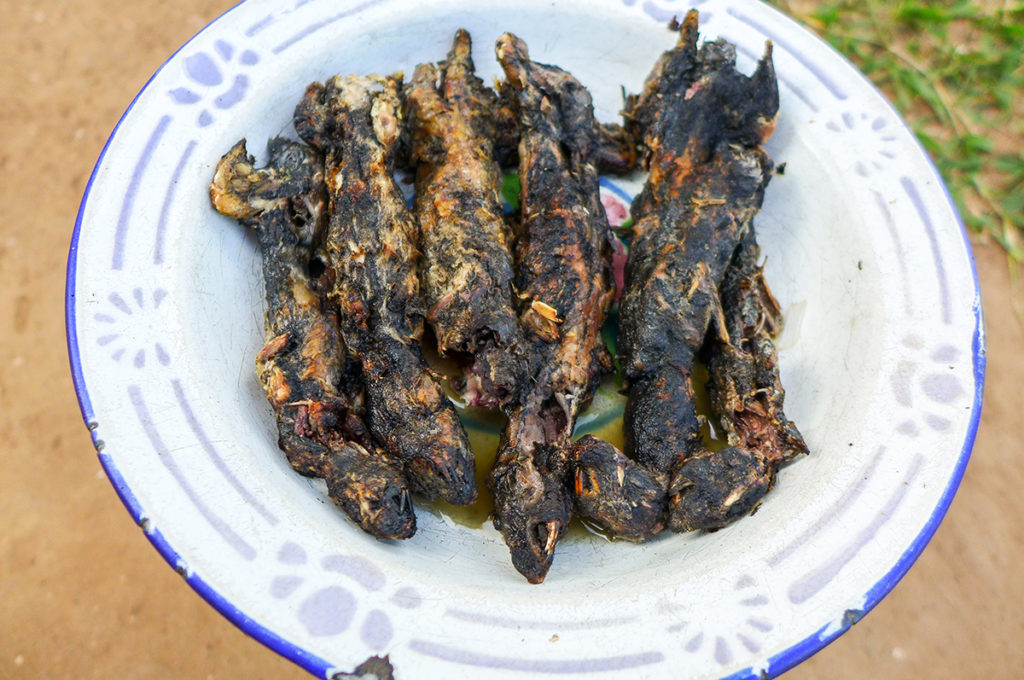
Merveille Kavira Luneghe, GPJ DRC
In Kirumba, a village in the Lubero territory of the Democratic Republic of Congo’s North Kivu province, rat meat is becoming a popular dining choice. “When we have guests, we can wow them by serving rat meat sauce with fufu,” says Masika Matumo, 70, a local grandmother for whom this cuisine is a specialty.
KIRUMBA, DEMOCRATIC REPUBLIC OF CONGO — DRC is home to more than 300 tribes, and each offers its own unique culinary delights.
For the Nande tribe in the Lubero territory in North Kivu province, rat meat is a common meal.
“When we have guests, we can wow them by serving rat meat sauce with fufu,” says Masika Matumo, 70, referring to field rats. Rats found living in houses are not considered suitable meat sources.



Matumo, known as Tate, meaning grandmother in Kiswahili, is loved by the children in the village, who often trap and collect rats for her. In return, she prepares fufu and serves her specialty — rat meat sauce.
Mwamini Zawadi, 14, says she likes staying close to Matumo, because she wants to learn her methods for preparing delicious rat meat dishes.
“I’m excited to learn everything, because I dream of one day starting a restaurant where people will enjoy rat meat,” Zawadi says, with a smile on her face.
In Kirumba, people love rat meat. It is very tender and comes cheap. Three rats cost 500 Congolese francs (38 cents).
How to catch, prepare and cook rats
Rat hunting in the village is done by young people. They track rats in the field and then work to dislodge them from their hideouts.
Typically, a group of youngsters makes weird noises, using their feet to hit the ground in unison and with force. Then, terrified rats come out of their hiding places and get caught in traps handcrafted by young people in the village.
Once the rats are trapped, the next step is to prepare the meat.
First, the rats’ entrails are removed and their hair is burned off.
Next, the rats must be thoroughly cleaned. Then the cooks prepare seasonings such as leeks, garlic, celery and tomatoes. Also, they use soy, cooking oil, salt and water.
After the oil is heated, the rats are dipped into it. After the rats are well cooked, seasonings and a little bit of water are added to make a sauce. Fufu, a doughy mixture of cassava or maize flour and water, is a popular dish to accompany rat meat sauce.
“Panya iko butamu sana,” which means “rat meat is very delicious,” says Matumo, after sharing the meals with those little sons and daughters.














